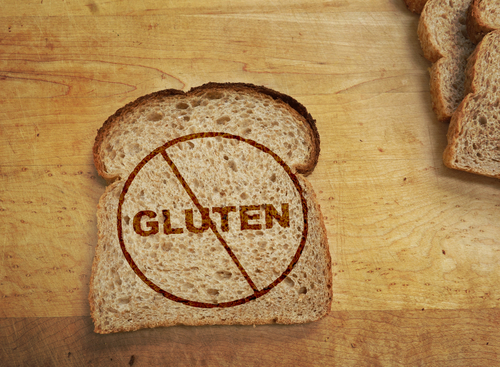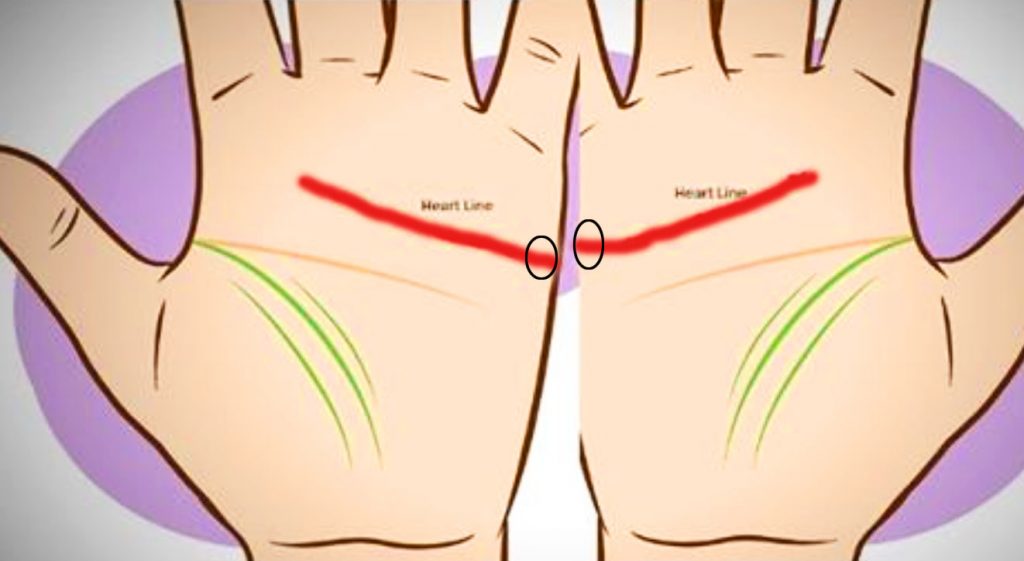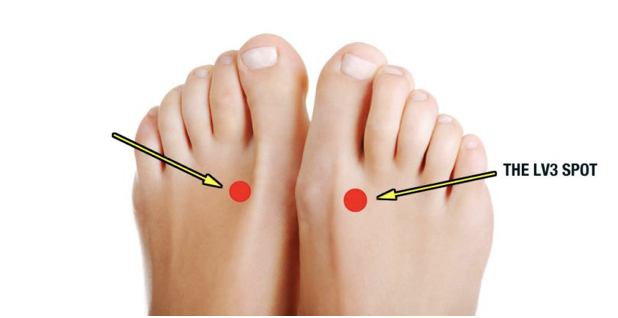7 Signs and Symptoms You Have a Gluten Intolerance and May Not Even Realize It.

Gluten. Everyone seems to be talking about it but is it really that bad for our health? The answer to that question is not easy because it’s very subjective and it all depends on whether or not your body is able to tolerate foods that contain it. While the reputation that gluten has been stuck with in the past few years may be undeservedly bad, one thing is for certain; that gluten intolerance can in fact be miserable to deal with.

Before we launch into all of the warning signs that indicate that you may be sensitive to gluten, you need to know some basic information, like what it is. Gluten happens to be a type of protein that’s commonly found in grains like wheat, oats, barley, and rye. In terms of baking, it’s part of what allows dough to rise and so it gives foods like breads and many desserts a chewy, fuller, and more airy type of texture.

The problem with gluten arises when a person has celiac disease and their body is, or over time becomes, intolerant to it. For the majority of people who are intolerant this means their immune systems react very badly to it and become inflamed when foods with gluten are eaten. This chronic type of inflammation can lead to the lining in the small intestine being damaged and in many cases the body becomes unable to adequately absorb nutrients. In turn a number of other medical complications arise, such as anemia and osteoarthritis. That is why it’s so important that gluten intolerant people do their absolute best to avoid any and all gluten!

If you think that you may be intolerant to gluten, your body will tell you. If you are experiencing the most common physical symptoms and signs that are associated with it and listed below, then you need to consult a doctor about the issue and to rule out other possible causes. With that in mind, if you have experienced any of the following it may be symptomatic of gluten intolerance and you should talk to your physician:

1. Chronic Fatigue
If you always feel tired and drained of energy, no matter how much sleep and rest you get, it could be diet related. When gluten is constantly inflaming your body, your immune system acts as if it is under attack and wastes a ton of energy trying to defend you. This is what makes gluten intolerant people feel so depleted and exhausted and over time it gets worse and worse. Eventually chronic fatigue sets in and the stress of it all just compounds it even more.

2. Fibromyalgia
If you have been diagnosed with fibromyalgia, which among other things is marked by weakness, sleep problems, muscle aches, and bodily pain, an intolerance to gluten could very well quite possibly be an underlying part of the associated chronic fatigue and other symptoms you’re feeling.

3. Stomach Pain
Symptoms such as bloating, diarrhea, gas, and constipation are all major and clear signs of gluten intolerance, especially if they are chronic. Persistent stomach pain and any of the aforementioned signs that last for days at a time need to be addressed by a doctor and should be taken very seriously. Foods that contain gluten can damage and inflame the small intestine in those who are intolerant and this may end up leading to a host of additional stomach/digestive related problems.

4. Chicken Skin
Chicken skin is when your skin resembles that of a skinned chicken and it’s marked by tiny, hard, white or pinkish-red bumps that look kind of like a rash. It’s actually a very common skin condition and the bumps often appear randomly, but are found most often around the elbows and on the back side of arms.

In medical terms chicken skin is called keratosis pilaris. It’s named after the keratinization of hair follicles on the skin which occurs when your body produces excess amounts of keratin, a skin protein. All of the extra keratin starts to clump together around hair follicles which causes bumps to form. Many cases of chicken skin are also attributed to fatty acid and vitamin A deficiencies which are brought on by a gluten inflamed gut causing malabsorption.

5. Itchy Skin
While the chicken skin mentioned previously is normally not itchy at all, many people with gluten sensitivity do have skin conditions that are extremely itchy, like psoriasis or eczema. Besides being very uncomfortable and itchy, they are also painful and require medication to properly deal with it. Human skin is easily influenced and affected by internal bodily conditions, so when your insides are inflamed and in turmoil it can lead to dry, itchy skin outbreaks.

6. Constant Headaches
If you experience migraines and chronic headaches, especially within sixty minutes of eating, it could very well be linked to diet and a gluten intolerance. People who also tend to have migraine headaches accompanied by pain, blurred vision, and dizziness show an increased sensitivity to gluten.

7. Dizziness
Feeling disoriented, lightheaded, and off balance are common symptoms people with gluten intolerance report. Most of the time these irregular and abnormal dizzy feelings show up soon after eating foods with gluten in them. If you keep track of what you eat and try out a strict gluten-free diet for at least a couple of weeks, you can gauge your bodies reaction and see if the dizzy feelings disappear and go away.

Note: Always go see your doctor if you believe you are experiencing any health issues.
Please Share This Information With Family and Friends
The 8 Most Common Signs Of A Gluten Intolerance Most People Don’t Know They Have Or Just Ignore!

We have all been hearing about gluten free diets for a few years now. Some people think that everyone needs to be on a gluten free regimen, and others mistakenly think that it has something to do with weight loss. The truth is that gluten intolerance or sensitivity is a syndrome suffered by approximately 15% of Americans.
This number could be somewhat higher because a large majority who are somewhere on this spectrum, never will be correctly diagnosed. That is why the information contained in the video below is really quite important. You may be suffering some of the following symptoms, and have no idea what is wrong with you.
The following are 8 signs that may mean you have a sensitivity or intolerance to gluten:
CHRONIC DIGESTIVE PROBLEMS; everything from constipation to diarrhea, and bloating that comes from gas buildup without any obvious cause, can be a sign of gluten intolerance. In children particularly, constipation that doesn’t go away may be indicative of gluten intolerance.
Some of you may have touched the back of your arms and thighs and felt little bumps for years. This “chicken skin”, believe it or not, may be a condition known as KERATOSIS PILARIS; it comes from a lack of fatty acid that is a result of gluten doing damage to your gut. I would never have thought that this could be related to gluten sensitivity.
CHRONIC FATIGUE can be a function of so many disorders, and obviously too little sleep. So what might alert you to a relationship between your fatigue and gluten intolerance? When the fatigue and a kind of brain fogginess follows meals that contain gluten. With chronic fatigue, a consultation with a physician should be sought right away.
A DIZZY FEELING, almost like being drunk, where your balance is impaired is another common sign of gluten intolerance.
Having pain in multiple trigger points and joints may lead to a diagnosis of FIBROMALGIA. When coupled with chronic fatigue, rather than being Fibromyalgia, you may very well be suffering from gluten intolerance. Many diagnosed with Fibromyalgia never look further; by eliminating gluten from their diet they could end up pain-free.
MOOD DISORDERS, or mood swings associated with anxiety, depression, bipolar disease, ADD and ADHD may be triggered by gluten intolerance. The only way to find out if this is a contributing cause, is to eliminate gluten from your diet, and see if the disorder gets better.
CHRONIC HEADACHES or MIGRAINES can be caused by many things. However, it may be indicative of gluten intolerance. Changing nothing but the elimination of gluten, and seeing if the headaches are reduced or eliminated, is the way to discover if gluten is involved.
Although AUTOIMMUNE DISEASES such as: rheumatoid arthritis, ulcerative colitis, Hashimoto’s thyroiditis, Psoriasis, Multiple Sclerosis, Lupus and Scleroderma can come from many different sources, gluten intolerance is one cause that should be ruled out with all of these diseases.
After you watch the video below, please let us know if any of these signs or symptoms are something that you have suffered, and whether you think that gluten intolerance may be a possible cause.
Please SHARE this with family and friends
9 Signs and Symptoms That You Have a Gluten Allergy and Don’t Even Know It. I Had No Idea.

Gluten-free diets have been touted in the media for quite some time now, leading many to eliminate it from their diets, because they have come to believe it is less caloric and healthier. The truth is that gluten-free is not less caloric, and eating a gluten- free diet is only healthier for those people who suffer from gluten sensitivity or intolerance.
Gluten is a protein found in wheat, rye and barley. It is not only found in breads (making the bread rise), but is also found in grains that are inherent to many other foods such as: pasta, livestock feed, beer and cereals. Because of it’s presence in many foods that are less obvious than bread, it becomes a more painstaking job to avoid it, if you truly are sensitive to gluten.
The following VIDEO that you are about to watch below is presented by Dr. Axe. He does a great job of explaining gluten sensitivity, as well as discussing the SIGNS and SYMPTOMS that you may be suffering from this intolerance, and what to do about managing it. If you are suffering from: AN IMPAIRED IMMUNE SYSTEM, EXCESSIVE FATIGUE, CHRONIC HEADACHES/MIGRAINES, JOINT AND MUSCLE PAIN, A LOSS OF MENTAL CLARITY, WEIGHT GAIN THAT SEEMS UNRELATED TO INCREASED CALORIE INTAKE, DENTAL PROBLEMS OR SUDDEN SKIN DISORDERS SUCH AS ECZEMA OR RASHES, these may be a sign of gluten sensitivity or intolerance.
If any of these symptoms are combined with chronic digestive problems, gluten may be the culprit. After watching the video below, if you feel you may have a sensitivity or intolerance, Dr. Axe offers suggestions on how to eliminate foods to see if your symptoms are alleviated.
Please SHARE this with family and friends
9 Clear Signs You Are Allergic/Intolerant To Gluten. Do You Have a Gluten Allergy?
In recent years we have all heard about “Gluten-free” diets. There have been misconceptions about Gluten, as it has taken on a a fad-like essence. Some people came to believe that eliminating Gluten would result in weight loss, while others thought that being on a Gluten free diet is a healthier way of eating for everyone; BOTH OF THESE NOTIONS ARE NOT TRUE.
However, GLUTEN SENSITIVITY or INTOLERANCE IS NOT A MYTH! In the VIDEO you are about to watch below, Dr. Axe explains that Gluten is the sticky protein that is found in wheat, rye, and barley. The Gluten found in our foods is different than the protein of yesteryear. It has become a hybrid, most probably due to environmental changes in farming and pesticides, which may explain why more people today find it challenging to digest, than in years before.
You may be one of those people who have a sensitivity or intolerance to Gluten, but could be unaware. So the question arises as to the how to find out if you are suffering from this. Dr. Axe discusses the SYMPTOMS, SIDE EFFECTS and WARNING SIGNS that may be indicative of GLUTEN INTOLERANCE:
1) DIGESTIVE ISSUES: after eating a meal with Gluten you experience gassy bloating, diarrhea and constipation.
2) FOOD ALLERGIES: To Eggs, Wheat and Dairy.
3) CHRONIC FATIGUE: Trouble concentrating and feeling of restlessness.
4) FIBROMYALGIA
5) Little red bumps on the back of your arm that itch.
6) UNEXPLAINED STUBBORN WEIGHT GAIN
7) JOINT PAIN such as Arthritis or Brain Inflammation. This is caused by Gluten eventually TEARING A HOLE IN YOUR GUT and leaking through, causing inflammation throughout the body!
8) AUTOIMMUNE DISEASES eventually result from the gluten leakage throughout the body, as cells perceive it as a foreign body attacking.
9) MOOD SWINGS: worsening of symptoms of depression, anxiety, ADD, ADHD and Autism.
Dr. Axe goes into more depth about disorders, that present CLEAR WARNING SIGNS, that you probably are sensitive to Gluten. He recommends an easy-to-follow way to go gluten-free, known as the “GAPS DIET”, and a process of eliminating certain foods and reintroducing them to ascertain whether Gluten is the culprit!
Please SHARE this important HEALTH VIDEO with your family and friends; it could make a huge difference in their QUALITY OF LIFE!





